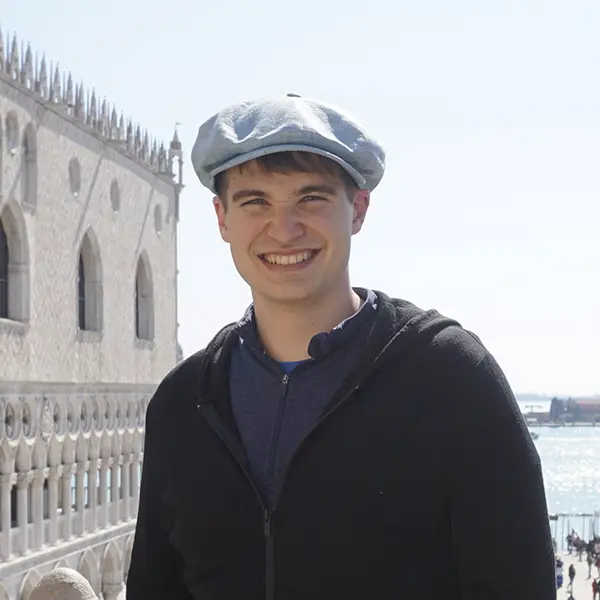-
-
- Financial Aid
- Financial Aid
- Scholarships
- Loans
- Grants
- Federal Work Study
- Additional Resources
-
I grew up in rural southwest Michigan as one of 10 children before attending Taylor, starting in 2011. While at Taylor, unsure of what exactly I "wanted" to do, I dabbled in several fields and considered many different majors: these include Biblical Studies, Economics, Physics, pre-Law, and Mathematics. Upon finishing my undergraduate, I applied for graduate school in several of these fields, ultimately settling for a PhD Candidate in Mathematics position at Michigan Technological University. After four years, I earned my PhD and then accepted an assistant professor position at Northeastern University, in Boston, Massachusetts. While there, I started the process of shifting from academia to so-called industry positions. I was hired as a data engineer at Putnam Investments (in their technology division) in Boston before eventually transitioning to a data scientist position in their investment research arm, which is where I work today.
There are several honorable mentions that should go here, such as Penthouse Christmas Open House or the math competitions we competed in. However, the single most impactful experience at Taylor University was the J-Term trip I took to Turkey in January 2013 with Dr. Greg MaGee. Before that point, I had never traveled outside of North America nor had any real interest in doing so. That trip sparked my interest in both history and traveling. These habits have since consumed more time and money than I would have thought reasonable pre-Turkey trip.
There are many "obvious" answers to this: for example, I employ linear algebra in my job every day. I still reference my undergraduate abstract algebra and statistics book. However, I'll share a less-obvious one. The professors at Taylor are responsible, in some sense, for my leaving academia. When I was at Taylor, I was given a very distinct and positive view of what being a professor meant and what a professor should be: education and student focused. What I found when I left the Taylor bubble (and yes, that is a thing) was not at all like this and it ultimately jaded me. I want everyone to have the kindness, caring, and competence shown to them by their professors that I did. I want every University to have the priorities of student success and education that Taylor did when I was attending. As I found out, this is not the case everywhere. Fortunately, the fact that Taylor allowed me a very versatile course of study with the Mathematics-Interdisciplinary degree proved extremely useful as it allowed me to leverage skills (such as coding, numerical analysis, writing, etc) in my every day work that I would not have anticipated using coming out of undergraduate.
There are two parts to my answer to this question: In my opinion, one of the expectations of Taylor graduates should be that they are a net gain to society and the world. There are many ways for this to take shape, but some of them are kindness, generosity, graciousness, and leadership. Taylor works hard to instill these values in you as a student: not many schools do. Second point: the education system is "flawed" in the sense that you are not training for a specific job. You learn generalized skills and hope that these skills can be applied to some work that will earn you a living. One counter to this is to make sure that you have such a wide group of skills, that you can make an impact most anywhere in the world. This is what a liberal arts studying program can do for you.

